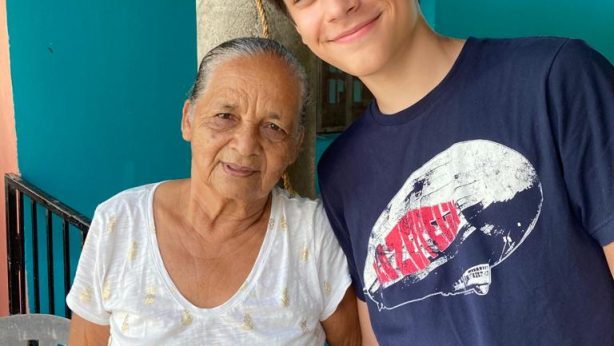Young Motherhood in Cortés, Honduras
When meeting someone here for the first time, two of the first questions that are typically asked of me are if I’m married and if I have children. Back in New York, I would be shocked to be asked these questions but here in Honduras, it’s more of the norm for a 22 year old woman like myself to already have children. Amongst our client demographic, the rates are higher than the national averages. According to a report by the Guttmacher Institute, one half of 20-24 year old women give birth by the age of 20, with higher proportions among the least educated (70%), poorest (64%), and those living in rural areas (60%)[1].
With girls and young women becoming mothers at such young ages, marriage–whether formal or informal–also comes into play at an earlier age. However, these unions are not necessarily created out of a desire to build a family together but rather out of economic convenience. When talking with clients about their goals, I’ve heard more than once a woman who lives in a house owned by her husband tell me that she hopes to own her own home in the future, where she can raise her children. These women see greater independence and self-sufficiency as important factors in offering their children a path to a better life.
Karla is a young 24 year old mother who lives with her husband in his home in the department of Cortés. She is the mother of three children: an 8 year old boy who lives with his father nearby, and her three year old son and one year old daughter who live with her and her husband. In order to care for her children while making a living for herself, she sells lotions, jewelry and clothing at home. Karla has been selling lotions for about a year and a half but held several jobs before being able to start her own business.
After finishing primary school, Karla left school and started working as a nanny at age 12. During her later teenage years she began working in a kitchen and then worked in a factory attaching the tags to garments. Working from home, Karla is able to work under better conditions while caring for her two young children. With her husband working everyday in a city a 45 minute bus ride away, Karla must be available to look after her children during the day. She says that her husband’s income does not go toward her own expenses, explaining, “He works for himself and to provide what he needs for our children. I have to work so that I can support myself.”
Although she was not able to study past primary school, Karla is now learning how to better run her business. When she started with Adelante, she was only selling lotions. The educational lessons provided by her Adelante Credit Officer every two weeks and her sister’s support inspired her to start selling jewelry. When I had met with her in December, she was getting ready to also begin selling clothing after several recent educational lessons have focused on how to implement a new idea into your business for greater earnings.
In another assembly in Cortés, I met Oneida who also makes a living selling jewelry. In addition to her business, she also works as a nanny. There, she makes about $25/week (L. 500) for four days of work caring for two children and washing and ironing the family’s clothing. However, unlike Karla and most of our clients, Oneida does not have any children. Although she is married, she explains, “I want to wait to have children until we are able to support them better.” This perspective is not often found among rural poor Honduran women and is even less frequently practiced.
Oneida’s viewpoint shows hope of a change in the minds of Honduran women in relation to motherhood. However, with 40% of adolescent births being unplanned [1], it seems that among young Hondurans, change in action and not just perspective must occur to reduce the high adolescent fertility rate so that young Honduran women are able to improve their own standard of living before having to worry about providing for a family.


